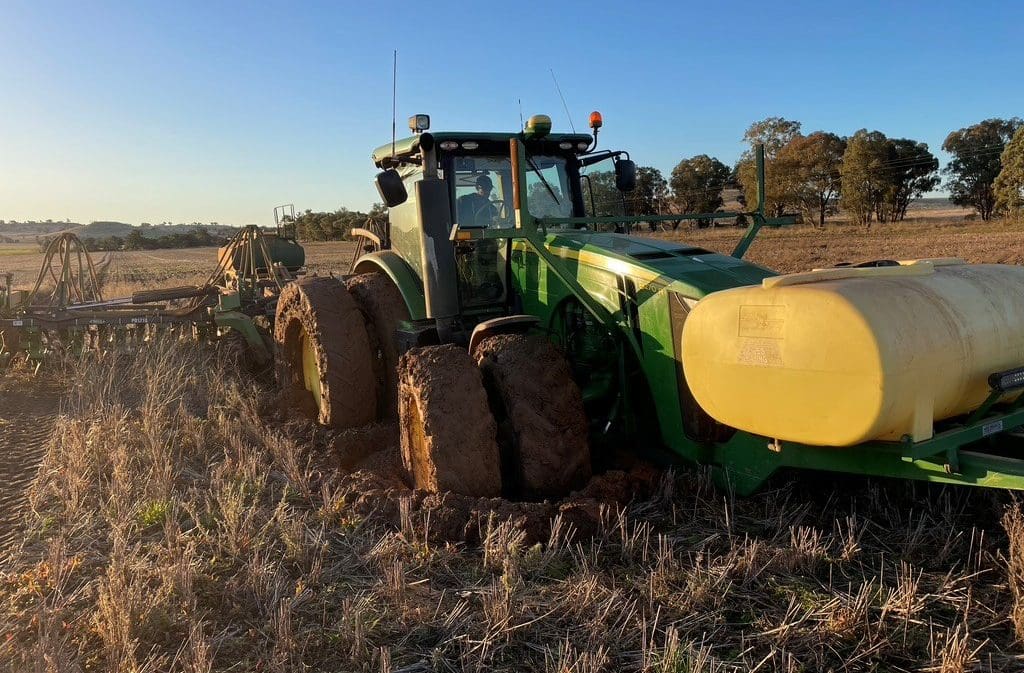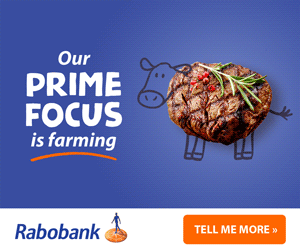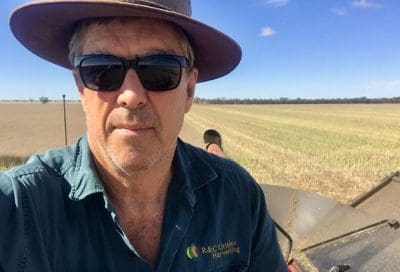
Many growers used to relatively dry conditions for harvest will have to think and plan differently to safely harvest their crops if their paddocks are wet this year. Photo: NSW Farmers
GROWERS must take extra precautions before and during crop harvesting on wet paddocks this year, cautions the Grains Research and Development Corporation (GRDC).
Exceptional rainfall across southern and eastern Australia means many growers will be faced with harvesting crops in very wet conditions.
Extension specialist and GRDC southern panel deputy chair Pru Cook said it is important for growers and harvest workers to look after themselves this harvest.
“Harvest will be a long, drawn-out process that will present a range of physical and mental challenges for growers and harvest workers,” Ms Cook said.
“We want to remind everyone involved in harvest operations this year to take their time to prepare, understand the risks and how to reduce them, and to look out for each other.”
Bogged header risks
Professional harvest contractor Rod Gribble from Yenda in New South Wales said one potentially fatal risk of harvesting in wet conditions is retrieving bogged headers.
“We used to use chains or cables to pull out bogged headers,” Mr Gribble said.
“I had the chain break once and it came hurtling back at me. It hit the back of the tractor and was only a metre away from breaking the window and taking me out.”
He now uses snatch straps to pull out equipment as they have more give in them and are less likely to break and do damage, but caution is still required.
“People have got to be patient.
“Someone will get bogged, and when you do, just stop.
“Remember that a header might weigh 25-30 tonnes, but you’re probably going to bog it when it’s got a fully loaded grain tank.
“The effort to pull out a loaded header is much greater – they are a dead weight stuck in the ground.
“Unload the grain first, take your time and clear the mud away from all the tires with a shovel or excavator.”

Harvest contractor Rod Gribble, knows the dangers of getting out bogged headers. Photo: Rob Gribble
Mr Gribble said growers should also review the operator’s manual for their machinery and learn the specific guidance for retrieving equipment should it get bogged.
Advice may vary and knowing the safest way to deal with specific equipment in advance – such as the recommended attachment points for snatch straps – is essential.
After clearing away the mud, Mr Gribble advises growers to take it easy pulling it out.
“Don’t tear off at 15km/hour, just take it slow and steady – even snatch straps can break and D rings can go flying.
“You’ve also got to be aware of the strap and D shackles’ rating when pulling out gear.
“People have died from trying to retrieve bogged equipment. You can get a new header, you can’t get a new head.
“Know when to walk away.”
Prioritise farm safety
AgHealth Australia reports that tractors are the leading cause of unintentional deaths on farms responsible for 251 fatalities between 2001 and 2020.
Growers can look out for workshops in their area or simply drop in and have a chat to their machinery expert to seek safety advice.
Katherine Colbert is the business development officer at Partners in Ag – a not-for-profit organisation providing farm training and farm safety workshops in Victoria and Tasmania.
“The wet season will compound the mental and physical risks that farmers have to deal with, putting them under significant pressure,” Ms Colbert said.
“There’s also less labour, meaning farmers will be doing longer hours themselves in unfamiliar wet conditions, which adds the dangerous element of bogged machinery.
“We really recommend farmers run a pre-harvest meeting with staff to go through every element of harvest, so everyone knows what’s expected of them and to ensure safety and emergency plans are in place.”
Ms Colbert said that most farmers have had a near miss incident and urges growers to not count on their luck next time, but plan to prevent dangerous situations and enact safety plans in advance to protect themselves and workers.
Source: GRDC

I’m an ex farmer who is living on my farm, and leasing it. Maybe organised meetings held in rural towns to give everyone involved in harvest information from experts in the area of retrieval of bogged equipment
e.g. the military.
This would also give farmers etc. a chance to share their personal experiences. as not all folk get the chance to catch up at the pub etc.
Put a damper on any tow chain, snatch recovery strop etc. Take up tension before you drive off. Use a rated chain to the rating required. Towing with a big tractor needs a big chain.